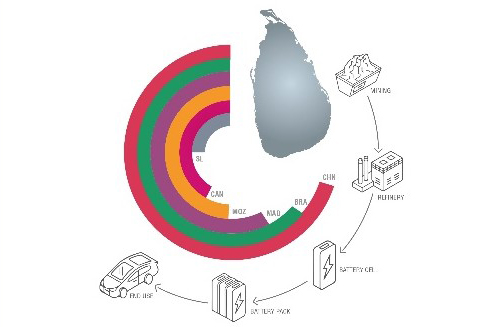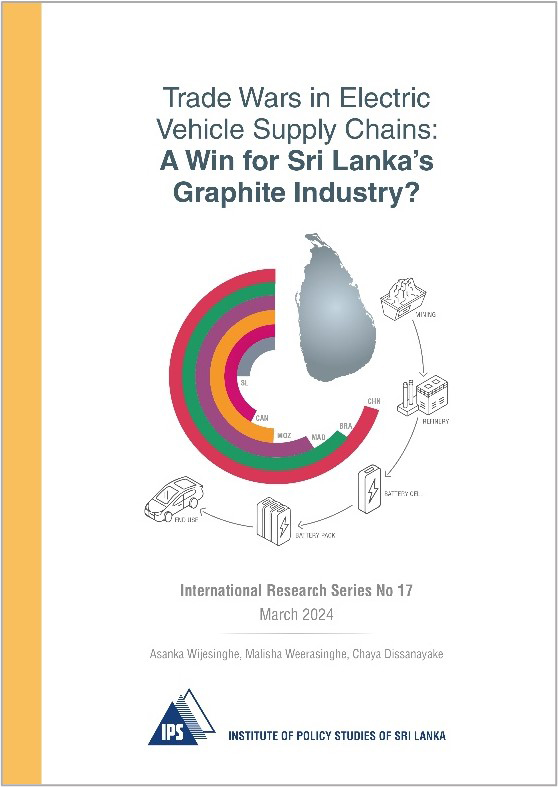March, 13, 2024

Sri Lanka, renowned for its high-quality vein graphite, is poised to benefit from the increasing demand for "non-China origin" graphite driven by the global push towards electromobility and the US Green Industrial Policy. A new publication by the Institute of Policy Studies of Sri Lanka (IPS) titled " Trade Wars in Electric Vehicle Supply Chains: A Win for Sri Lanka’s Graphite Industry?" by IPS researchers, Dr Asanka Wijesinghe, Malisha Weerasinghe and Chaya Dissanayake explores the potential for Sri Lanka to join the supply chain for Electric Vehicle (EV) battery manufacturing.
The US's strategic move to adopt a proactive green industrial policy, driven by the imperative to achieve net-zero emissions and national security concerns, presents fresh opportunities for graphite producers outside of China. The recently enforced Inflation Reduction Act (IRA) plays a pivotal role in reshaping the global EV battery supply value chain by excluding China and promoting domestic assembly and manufacturing of EV components.
Key findings from the IPS study reveal that as a result of these developments, the demand for graphite, a critical component of Lithium Ion Batteries (LIBs), is set to surge. "Non-China" graphite exporters, including Madagascar, Mozambique, and particularly Sri Lanka, are positioned to benefit from the re-alignment of the supply chain.
The Partial Equilibrium modeling results indicate that Sri Lanka holds a strategic advantage in the emerging market. Sri Lanka's vein graphite, known for its purity, flawless crystal structure, and strong electrical conductivity, stands out as an ideal choice for the growing global demand. Despite facing challenges in terms of cost competitiveness, Sri Lanka's focus on sustainable practices, minimal environmental impact, and compliance with acceptable labour standards positions it as a key player in the evolving landscape of "non-China" graphite exports. Additionally, Sri Lanka possesses a comparative advantage in graphite production and benefits from an established mining sector with an existing consumer base. Increased demand will partially help Sri Lanka by increasing the world market price of graphite in the future. However, the productivity of the mining sector needs to be increased to lower the unit cost, to benefit from the emerging global opportunities.
The study underscores that Sri Lanka's most promising opportunities lie in the upstream segment, particularly in the mining and processing of graphite into battery-grade material. Leveraging its growing trade relationships with ASEAN nations and exploring mineral trade agreements with the US, Sri Lanka can attract investments to further boost its mining sector.
While acknowledging the challenges posed by the US green industrial policy, the study recommends strategic measures for Sri Lanka, including value addition through anode production and investment in research and development initiatives. Establishing battery testing laboratories for local university researchers will enhance the country's technical expertise in EV battery component manufacturing, creating high-quality job opportunities within the sector.
The findings highlight the need for proactive steps to navigate potential logistical challenges, given the concentration of global EV battery manufacturing in select economies. The study also emphasises the importance of sustainability in graphite extraction to avoid environmental and social consequences in the pursuit of achieving net-zero targets.

Video Story